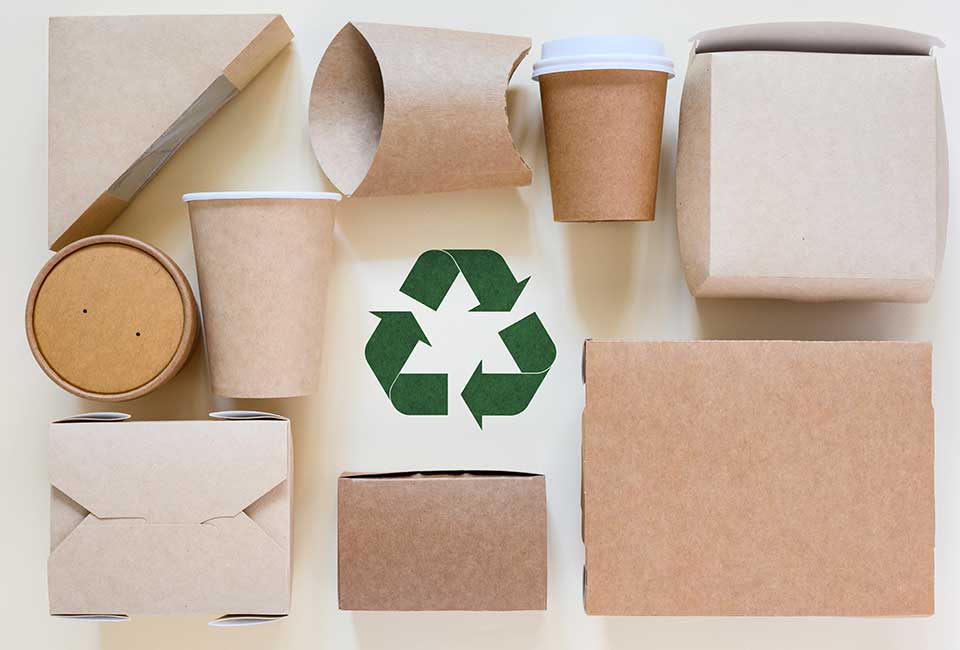
Consumers' willingness to pay more for sustainable packaging has decreased since 2021, according to a study. Nevertheless, almost two thirds are willing to pay an average of 6% more.
Sustainable packaging is increasingly becoming the standard. The latest 'Sustainable Product Packaging' study by global strategy consultancy Simon-Kucher shows that the proportion of consumers who are willing to pay more for sustainable packaging has fallen significantly since 2021. In 2021, 83% of consumers still stated that they were willing to pay a premium for sustainable packaging; in 2024, this figure had fallen to 64%. Compared to previous years, the average amount that consumers are willing to pay more in 2024 remains relatively stable at 6% (2021: 7%; 2022: 6%; 2023: 7%). «For consumers, sustainable packaging is already a prerequisite today», emphasizes Dr. Daniel Bornemann, Senior Partner and expert for the paper and packaging industry at Simon-Kucher. «Manufacturers should act now to develop efficient solutions and stay one step ahead of the trend», he advises.
Consistent communication is important
Sustainability also remains an important purchasing criterion for packaging. According to the study, 24% of consumers opt for sustainable packaging where possible. However, there are also conscious decisions against sustainable packaging: 17% do not believe the statements on sustainability and 15% state that they have too little information. «The desire for trustworthy statements on the sustainability of packaging and the lack of information show that around a third of consumers still have a communication deficit with regard to sustainable packaging», explains Mark-Daniel Rentschler, Senior Director at Simon-Kucher.
The less packaging, the better
When asked about their packaging preferences, consumers were the second most likely to name unpackaged products (55%). If packaging is used, then it should be biodegradable (51%) and recyclable (56%) or made from recycled materials (51%). Only 29% pay attention to a good CO2 balance. «For years, the carbon footprint has only played a subordinate role for consumers when it comes to sustainable packaging», says Stephanie Sparber, Senior Director at Simon-Kucher. «Especially compared to other industries, where the carbon footprint is considered an important sustainability criterion. Tangible sustainability attributes such as recycling are more important for packaging», she says.
Online retail relies on corrugated board
The topic of sustainable packaging has also long since arrived in online retail. A full 42% prefer corrugated cardboard made from recycled paper for online orders. 18% state that they prefer reusable containers made of hard plastic, while 14% prefer no packaging at all and prefer the product to be directly visible. Only 20% of respondents state that the sustainability of packaging is not a priority for them when shopping online. «This is a clear signal to online retailers», says Bornemann. And he continues: «In the coming years, we can expect an increasing demand for economical and sustainable solutions in online retail. We need to develop a coherent overall concept in order to ship products sustainably and to be perceived as a sustainable online retailer.»
Less change than expected: one-way deposit on plastic milk packaging
A deposit has been levied on milk, mixed milk drinks and dairy products in plastic packaging in Germany since the beginning of the year. However, this development has initially had no impact on purchasing behavior. 80% of respondents do not feel that the newly introduced deposit has influenced their purchasing habits. «The still small impact of the deposit regulation on milk packaging may be a sign that consumers have generally become accustomed to disposable packaging», says Bornemann. And he concludes: «At the same time, however, it also shows that some measures have less of a steering effect than expected.»
About the study
The representative end consumer study 'Sustainable Product Packaging' was conducted by Simon-Kucher in May 2024 in collaboration with the market and opinion research institute YouGov. 2'035 consumers in Germany were asked about their attitudes and willingness to pay for sustainable packaging.
Simon-Kucher is a global management consultancy with more than 2'000 employees in over 30 countries. With around 40 years of experience in monetization and pricing, it is a global leader in pricing consulting and business growth.